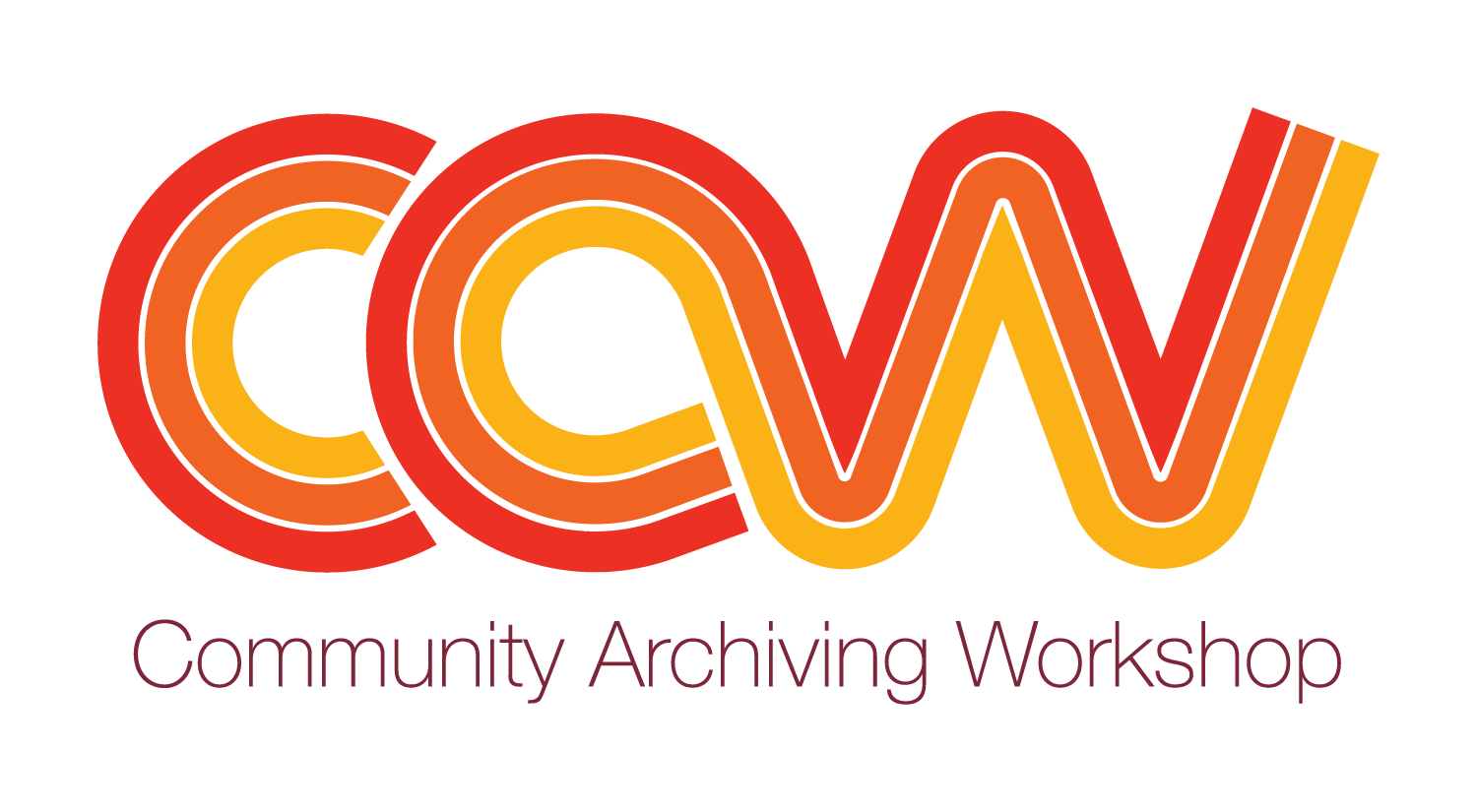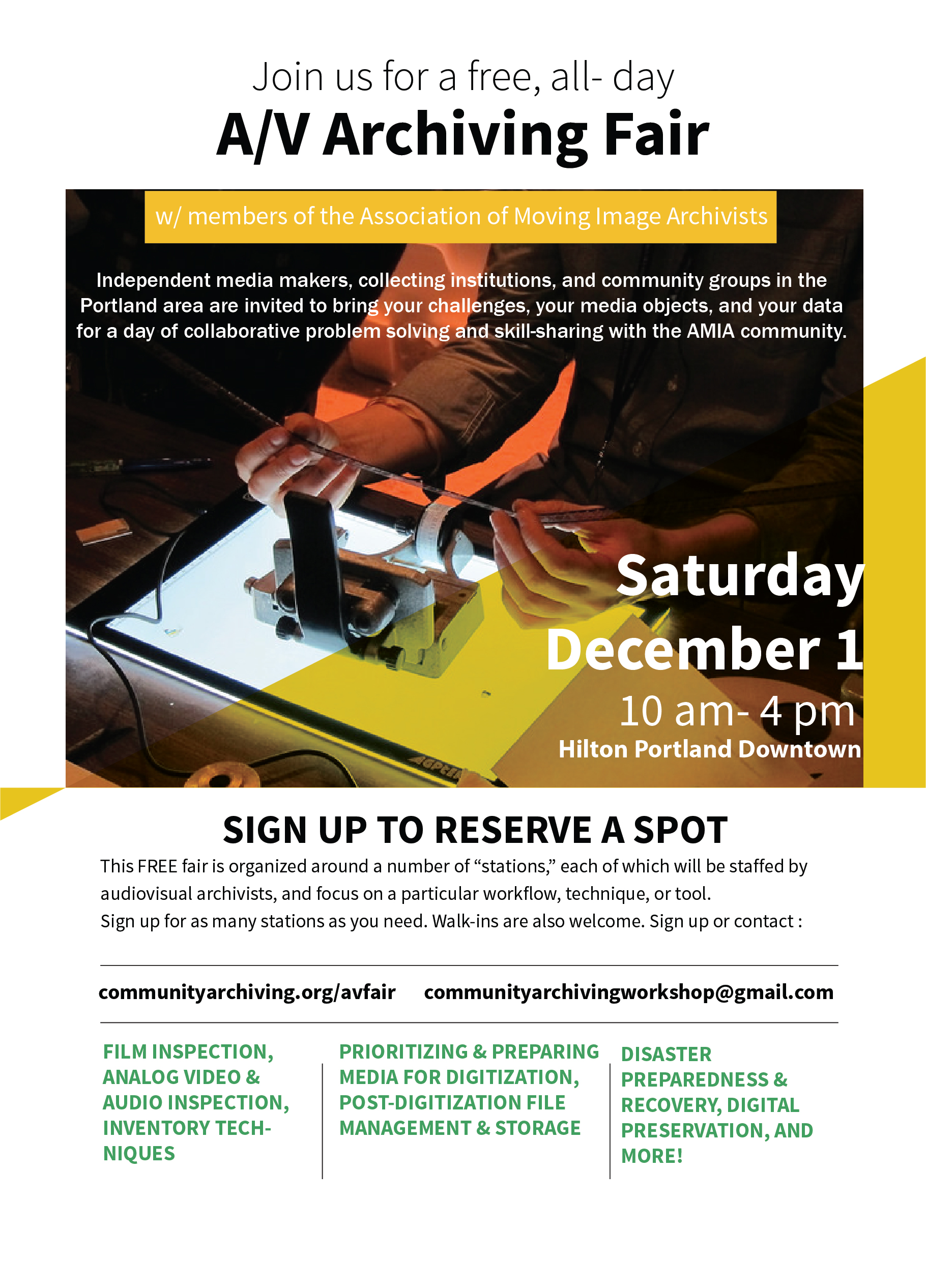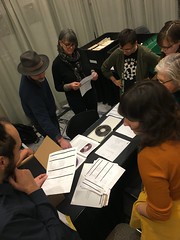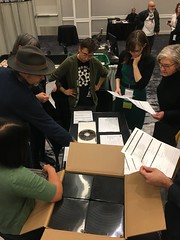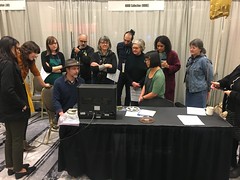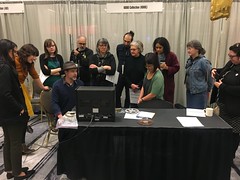Saturday, December 1, 2018 | 10am-4pm | Hilton Portland Downtown
Join us for a free Community AV Archiving Fair! Independent media makers, collecting institutions, and community groups in the Portland area are invited to bring your challenges, your media objects, and your data for a day of collaborative problem solving and skill-sharing with the AMIA community. The fair is organized around a number of “stations,” each of which will be staffed by audiovisual archivists, and focus on a particular workflow, technique, or tool. Stations include: Film Inspection, Analog Inventory Techniques, Digitization, Prioritizing & Preparing Media for Digitization, Post-digitization File Management & Storage, Disaster Preparedness & Recovery, Digital Preservation, and more!
Welcome and Station Matchmaking
Format: One-hour shifts
Description: Not sure where you’d like to start? Tell us what your needs or interests are and we’ll recommend a station for you to visit. Are the AV materials you’re bringing really heavy? We can help you carry them to the appropriate station. The staion is the initial contact for AV Fair attendees when they enter the AMIA pAVilion. Direct them to a specific station or work with them to find the right place to start. Promote the event through social media. Provide assistance for attendees as they drop-off collection materials.
Intended audience: Anyone who isn’t sure where to start as well as helpful AMIA or community members.
Bring with you: Nothing required.
KBOO Archive
Format: Hands-on, discussion (all day)
Description: This station seeks to empower community members to preserve and provide access to a sample of ~200 ¼” open reel audio tapes from the KBOO Archive. Along with KBOO volunteers, attendees will create a simple inventory that includes condition notes based upon the Archive’s catalog, using Google Sheets / Excel / Google Forms. The KBOO Archive station will provide basic descriptive metadata and guidelines; rehousing and labeling if needed; prepare tapes for digitization at the nearby Audio Digitization station; and will fine-tune procedures that will help complete the project beyond the AV Fair.
Intended audience: Anyone who is interested in KBOO’s history, and anyone that would like to learn more about inspection, handling, and preparation for digitization of ¼” open reel audio.
Bring with you: Nothing required, but attendees are encouraged to bring laptops for cataloging.
Audio Digitization
Format: Hands-on, demonstration and discussion (all day)
Description: This station is dedicated to digitizing a selection of ¼” open reel audiotapes from the KBOO Archive. Attendees will learn steps to preparing tapes for digitization, including preservation assessment, attaching leaders, and tape repacking, and will help digitize tapes using a basic digitization setup using TEAC decks, Prism Titan A/D converter, Audacity, and BWF MetaEdit.
Thank you Nathan Georgitis, University of Oregon, and Association for Recorded Sound Collections for volunteering your time and equipment!
Intended audience: Anyone who is interested in KBOO’s history, and anyone who would like to learn more about digitization of ¼” open reel audiotape.
Bring with you: Nothing required.
Film Inspection
Format: One-on-one or small group demo and discussion (~20 min)
Description: Attendees will learn how to determine basic information about a film without having to watch it, and will learn how to answer questions such as: Does it have sound? Is it color or b/w? What is the title? How do you read date codes?, etc. Depending on the needs of each attendee, station volunteers will go into greater detail and provide recommendations on equipment, and/or provide hands-on training on topics such as how to add leader and how to splice film.
Intended audience: Anyone with film that would like to learn more about inspection and handling.
Bring with you: Nothing required, but attendees are encouraged to bring a small selection of films (1-2) to be inspected.
Analog Inventory Techniques
Format: Hands-on and small group lecture (~20-30 min)
Description: AMIA volunteers will provide a hands-on demonstration on how to identify common magnetic media and film formats (as needed), then show attendees how to create a simple inventory template using Google Sheets / Excel / Google Forms which provides essential data about the collection for use in collection planning and advocacy.
Intended audience: Archivists / Artists with an unprocessed av collection; those looking to improve organization and physical order of their collections; those looking to establish a cataloging workflow; those looking to gather data about their collections for advocacy or grant-funding.
Bring with you: Attendees are encouraged to bring sample items (5-25) from their collection to test and inventory, laptops for cataloging, and are encouraged to bring in any existing inventory strategies for discussion and review.
Prioritizing & Preparing Media for Digitization
Format: Small group (max 10 people) discussion (~20-30 min)
Description: This is a good station to go to after the Analog Inventory Techniques station. Attendees will learn considerations for prioritizing media for digitization, and methods for preparing media for digitization. We will discuss assessing the value of media based on personal or organization needs, with the ultimate goal of establishing concrete prioritization tiers. We will also discuss manageable preparation work for physical media (film + video), including basic storage concerns and long term planning. Digitization is not a quick fix or “one and done” process. Preparation and prioritization will help in managing time, resources, and expectations.
Intended audience: Filmmakers, personal archivists, curious individuals – anyone embarking on a smaller-scale media digitization project for the first time (and with minimal resources).
Bring with you: Attendees are encouraged to bring in any existing inventory strategies for discussion and review, along with sample items (5-25) from their collection to assess.
Video Digitization
Format: Small group (5 persons max) hand-on demonstrations (~20 min)
Description: Attendees will learn about a basic digitization setup for analog video which can be implemented at low-cost, and about minimum equipment needed to perform good quality video digitization in house and will get acquainted with signal paths, connectors and video digitization workflows. Each demo session covers:
- Video and audio signal paths
- Wiring diagrams for audio and video
- Common cables and connectors
- Minimum equipment for good quality digitization
- Discussion on target formats
- Digitization software
- Additional useful tools (if there’s enough time)
Intended audience: People from small/community orgs with video collections and reduced budget
Bring with you: Nothing required, but attendees can bring VHS tapes to be transferred
Film Digitization
Format: Small group (5 persons max) hand-on demonstrations (~20 min)
Description: Attendees will learn about a basic digitization setup for film.
Intended audience: People from small/community organizations with film collections and reduced budget
Bring with you: Nothing required, but attendees can bring 1-2 short film reels to be transferred if possible (30 min of content maximum per attendee).
Post-digitization File Management & Storage
Format: One-on-one or small group discussion
Description: Attendees are invited to come with their questions about digitization of moving image materials, workflow techniques, and recommendations as well as tips for storing files safely and checking for integrity over the long term. Questions about digital storage, file organization and file naming will also be able to be addressed, depending on attendees’ needs.
Intended audience: Filmmakers and archives without digital preservation skillsets
Bring with you: Bring questions first and foremost about digital preservation, storage, digitization and so on, especially about video materials but broader questions work too. Laptops and sample files are welcome too.
Disaster Preparedness & Recovery
Format: Exhibit, Q&A
Description: The aim of this station is to introduce attendees to approaches for how to mitigate disasters, how to be prepared when disaster strikes, how to respond in an emergency, and how to assess and salvage damaged audiovisual items.
Intended audience: Attendees interested in learning more about disaster preparedness and recovery, and sharing their strategies.
Bring with you: Nothing Required.
Digital Preservation & File Storage Management
Format: One-on-one and small group consultations (~ 30 min)
Description: This station offers practical tools and strategies to begin preserving your digital materials. Discover what’s on that mystery hard drive, DVD, or floppy disk. Learn how to build your own digital forensics station.
Intended audience: Attendees interested in learning more about the best practices, tools, and strategies for preserving your digital materials.
Bring with you: Nothing required, but sample digital materials or digital media mysteries in your collection are welcomed, like hard drives, flash drives, CDs, DVDs, 3.5 floppies, and questions.
